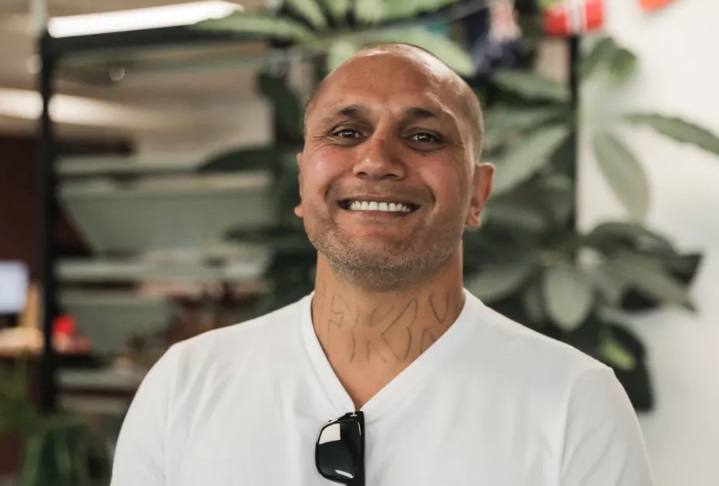
Late last year, Herewini was asked to speak to a group of young people doing a six-week Limited Service Volunteer programme: A residential skills course run by the army. The response was emotional, he said.
"This military police guy said we've had 10 or 12 people come through and they've been disruptive, they've been distracted, they're not listening but with you, I could hear a pin drop."
It was the first time he had shared his life story publicly - and he wanted to do it to help the rangitahi in the room to change their thinking and their lives.
Herewini said he had a tough childhood where his mother abused him after his father died at the age of eight. Herewini wanted to reflect that on the world in order to hurt her, too, and fell down a spiral of crime, stealing a car at 14, being expelled from school at 15 for selling marijuana, and ultimately ending up in jail in his early 20s.
"Once I started down the path, things just got worse, I got more cocky and confident, believing in my ability to do what I had to do ... the value of money, I didn't really know because I hadn't worked like a full day in my life, so it was easy come and easy go mentality.
"As I got older, and I progressed into more and more heavier crime then obviously it was just leading to one place.
"We were getting beaten up by cops too when were young. They'd see us walking around on the street and pull over and start beating us up and stuff, so that gave me a bit of an attitude to like authority figures."
In total, he spent 10 years in prison, but initially he did not feel bad about his first stint there, taking it on the chin instead and believing in an old school mentality of saving his street cred.
"I felt good, because remember I was trying to hurt my mother in my actions and she was always there and she always sort of supported me through this time ... I was away from home, I was on my own and I didn't have the support as well, and the support I did have were criminals and people who were inside jail."
During his jail stints, he was diagnosed with testicular cancer at the age of 21, and he says that made him worse.
"I thought I was dying so I had a 'go out in a blaze of glory' attitude, and I just didn't care even more. As opposed to me feeling sorry for myself and realising this is a quite serious, I sort of switched it around and utilised it as fuel for me to carry on and be worse."
At Mt Eden Prison, Herewini's life hit rock bottom. The tumours had spread to his organs and he had to have four lung operations, he said.
"I was literally dying, literally dying in a cell ... I think I was my own worst enemy, and I was so stubborn and so certain of my ways, so closed minded, that it had to take for me to not just to be in jail but also to have cancer and go through the battle I had for me to break. That was when I literally just broke.
"I asked for help, and I asked the Lord that 'if you're there and you get me out of this, I will change my ways'. Like I said in my story, it was instantaneous, I was relieved, I was not in as much pain as I was and it was like the light switched on, and I felt like a rush of energy go through me."
While reconnecting with his faith was important, he said his changed mindset motivated him to choose a different path and he began to read self-help books to guide him in changing his habits.
"It was like I had a lust for life again and I was excited about the next part of the journey."
He has been cancer free for 16 years now, married, has his own construction business, and last year travelled through Europe for four months with his wife - something he never thought he would be able to do.
His message to the rangitahi he spoke to last year: "You can change the outcome of your life and break the cycle". He said life was not easy, that failing was part of success and only you can carve out your path of being a follower or leading your own choices.
"You're counting all your milestones as successes so it gives you the drive [to continue] ... because I think a lot of people forget what they've achieved and then they get so like bogged down in all the information that they're getting bombarded with these days that they actually don't realise that they have a lot to be grateful for as opposed to what they don't have."













